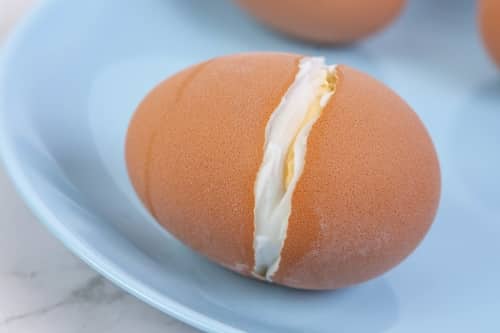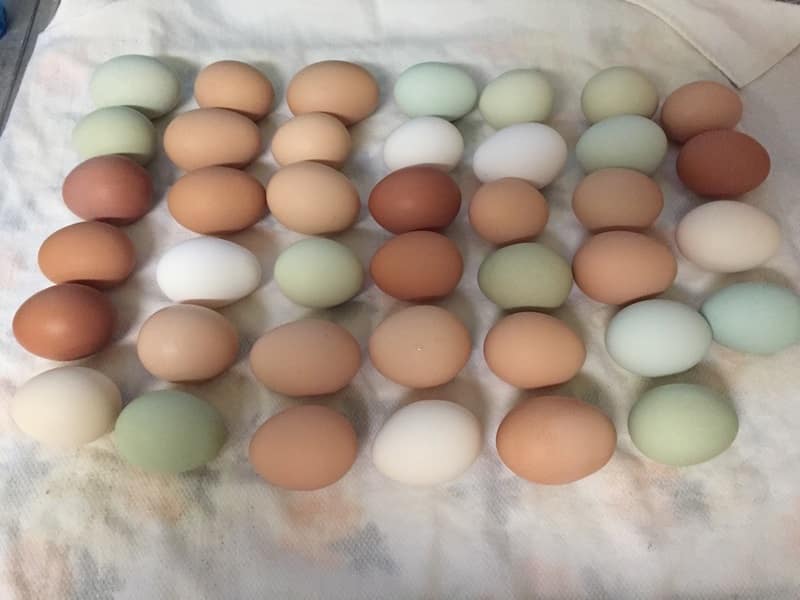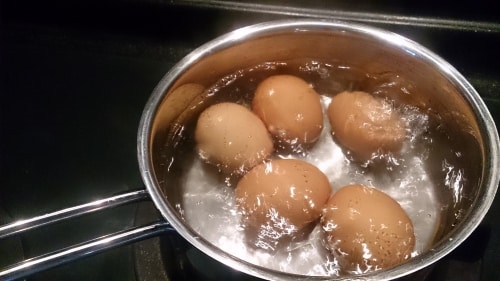
Because boiled eggs are a staple in most households, it’s worth mastering the technique of how to cook them perfectly. They’re used for so many dishes such as egg salad sandwiches, potato salad, Cobb salad, or curried eggs.
Hard-boiled eggs are probably the easiest form of eggs to make because a few extra minutes won’t destroy them, unlike, say, fried eggs which turn hard and rubbery if overcooked.
However, if not timed correctly, even hard-boiled eggs can become rubbery, mushy, or worst of all – slimy.
Why Is My Hard-Boiled Egg White Mushy?
The main difference between soft, medium, and hard-boiled eggs is the amount of time for which you boil them. The most common reason for mushy or slimy whites is that the eggs haven’t been boiled for long enough. This means that the white is still a little raw.
Hard-boiled eggs have a set, crumbly yolk, and firm, opaque white part. To achieve this perfect consistency and not have mushy whites, the eggs have to be boiled for long enough.
Why Does This Happen?
Perhaps you’ve boiled your eggs for the same time that you always do, yet the whites are still soft and mushy. Here are a few reasons why this could happen.
- The eggs are larger than usual and therefore need a longer cooking time. A difference of just a few grams can change the cooking time by half a minute or more.
- The eggs were in the fridge. The colder temperature means that they will need longer to cook properly. Sometimes eggs accidentally get pushed towards the back of the fridge where they partially freeze. While this will not harm the eggs in any way, it will increase the time they need to become hard-boiled. It is good to keep your eggs in the fridge, just make sure they’re in the original container towards the front of the fridge.
- The temperature of the cooking water was different from usual. You should always put raw eggs into room temperature water (straight out of the cold tap), not ice cold or boiling water.
- Your eggs are extremely fresh. The fresher eggs are, the more water they contain. This moisture can give the egg whites a softer, mushier texture even once they have been hard-boiled. (It can also make the whites more difficult to whip into a meringue.) If your eggs are very fresh, boil them for an extra minute or two.
Times for Boiling Hard-boiled Eggs
Eggs are one of the simplest things to cook, yet also one of the trickiest to get exactly right.
In your fear of having mushy hard-boiled eggs, you don’t want to err on the other side of overboiling them and ending up with a green, sulphuric ring around the yolk.
So, follow our tips for perfect hard-boiled eggs.
- Purchase eggs that are at least a week old, preferably two. Older eggs peel better and contain less moisture.
- This method uses eggs straight from the fridge. Put the eggs into a saucepan and cover them with cold water from the tap. The water should be an inch above the eggs. If you’re cooking a very big batch (say, a dozen), then allow two inches of water over the top.
- The saucepan should be uncovered (no lid).
- Put the heat to high and bring the water to a fast, rolling boil.
- Turn off the heat, put the lid on immediately, and leave the eggs to sit in the water for 12 minutes. If the eggs are very large, leave them for 15 minutes. You can leave them for up to 18 minutes without overcooking them.
- Drain the water out and refill the saucepan with cold water. This will stop the eggs from overcooking and make them easier to peel. If you’re in a hurry, remove them from the water with a slotted spoon and put them into a bowl of water and ice.
- You can store them unpeeled in a plastic container in the fridge for up to 5 days. If peeled, you can store them for just 2 days.
The Bottom Line
Are the whites of your hard-boiled eggs a little mushy? We hope this article has helped you to understand the causes and reassured you that the eggs are not bad if this happens.


